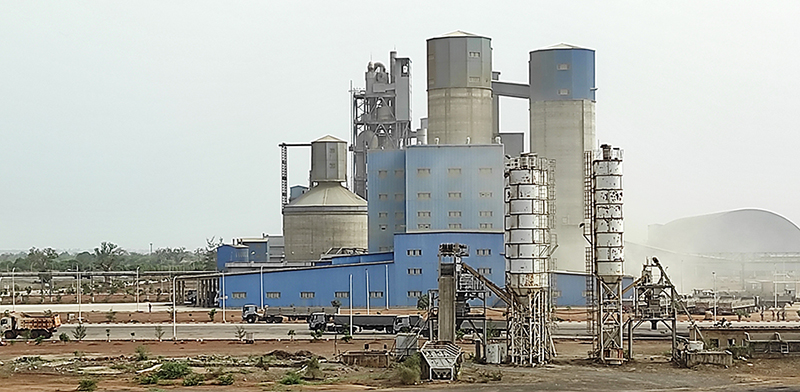|
Global Cooperation and
Scaling Up
with Green Technologies
The
COVID-19 pandemic is no longer just a global health crisis; it is also a
major economic crisis with catastrophic consequences for the world
economy and people. The restrictions on travel and trade imposed to
contain the pandemic has exposed fault lines in the global supply chain
and revealed vulnerability of the poorest countries. It is estimated
that COVID-19 will push 23 million individuals in Sub-Saharan Africa
into extreme poverty (living on less than USD1.90 per day) in 2020.
Considering this situation and to help vulnerable people cope with the
twin crises, various countries have strategised approaches to deal with
the issues. While the major focus is on providing short-term aids and
reliefs, one of the long-term approaches to deal with the issues is to
build resilience amongst the people to cope with natural disasters. One
of the strategies is to “help people help themselves” and, therefore,
the approach of a South-South Cooperation.
Various approaches are possible in South-South Cooperation, for example,
building skills, transferring knowledge and building conducive policies.
However, to build long-term resilience, one of the approaches is to
build enterprises and entrepreneurship, especially in the MSME sector.
MSMEs are the backbone of any country and provide jobs and goods at
affordable prices. Development Alternatives Group has been a strong
believer of the transferring knowledge and building skills approach. We
have been spearheading the same in the global South through transfer of
clean technology solutions, know-how, policy influencing and capacity
building support. The key idea has always been to seed new technologies
and support its scaling-up in a business-like manner. In parallel, to
accelerate the process, technology-transfer initiatives have stretched
out to significant policy interventions at the ministerial level. The
policy changes to introduce green technologies were not based on
secondary literature survey or mere theory; rather all stakeholders were
brought together on the same platform and an inclusive demonstrated
experience became the solid proof of the many possibilities that
governments, industries and communities can safeguard the environment
and at different scales contribute towards the some of the significant
UN Sustainable Development Goals.
Malawi, one of the poorest countries in the world, has an economy that
is not resilient and heavily depends on imports to meet internal demand.
It must brace for a sharp fall in foreign direct investment and trade
inflows, and an exponential rise in unemployment. There is an urgent
need to go beyond mere emergency response measures and prioritise
long-term measures which build local capacities for economic resilience,
while ensuring social and environmental protection of all. One such
promising measure for reconstructing a resilient Malawi lies in
addressing the major development challenge of rapid urban population
growth and its housing needs. Malawi is one of the most rapidly
urbanising countries, and requires nearly 21,000 housing units every
year to meet the current demand and future growth. While 16% of its
population lived in urban areas in 2018, many resided in overcrowded
urban settlements lacking basic services such as safe and durable
housing, improved water and sanitation and sufficient living area.
The high urbanisation rate has put a tremendous pressure on the entire
building materials sector. Currently, most of this demand is met by
rampant mining and unsustainable processing of natural resources such as
soil and sand. Further, burnt bricks, the major building material, were
fired using wood. However, TARA’s intervention through GIZ-MIERA
highlighted the serious environmental concerns involved in the
accelerating deforestation in Malawi. Thus, the introduction of
technologies like EcoKiln, wherein brick-making no longer requires
wood-fired technologies, provides immediate relief to the
crisis-affected population, serves the housing needs and has emerged as
an opportunity to provide reliable, safe and cleaner building materials
to the construction industry. The success of the entire intervention
lies in the Government of Malawi’s policy change wherein a ban on
wood-fired kilns is henceforth imposed.
Our strength lies in improving our positions and partnerships through
the implementation of ongoing projects as well as making due
preparations to introduce green technologies, and, in parallel, working
with the governments. For example, the Government of Egypt is promoting
low carbon cement standards and is keen to transform the cement
industry, which is a major contributor of greenhouse emissions. It seeks
active participation of industry and community alike to implement the
same.
In West Africa, a task force visited Senegal only to learn that the
country’s traditional dwellings were made of mud, but that has been
abandoned. Dakar’s sidewalks today are littered with piles of sand and
stones that are mixed with cement to make cheap building blocks. To make
modern earth bricks, workers mix soil with smaller amounts of cement and
water to create a mixture that they cut into blocks, compress with a
hand-operated machine and leave them to dry for 21 days. Senegal may
boast a relatively small populace of just 15 million, but it’s no
stranger to the problems that ultra-rapid urbanisation can bring. In
1960, 23% of Senegalese people lived in towns and cities. By 2013, that
figure had almost doubled to 43%, and is projected to reach 60% by 2030.
The increasingly extreme climate conditions, from high temperatures to
insufficient rainfall, in the Sahel region and the steady expansion of
the nearby Sahara Desert make this influx of people into concentrated
areas a difficult burden to shoulder.
The policy intervention in parallel with the introduction of green
technologies will not only restrict in its impact for Senegal but will
also be effective for the Economic Community of West African States (ECOWAS)
which comprise the entire Western Africa.■

Debojyoti Basuroy
dbasuroy@devalt.org
Back to Contents
|
